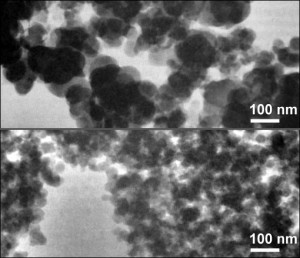Search Results for Tag: black carbon
Soot as second worst greenhouse gas
Whenever your candle’s wick is too long, the lit candle produces something called soot. Soot consists of 80 to 95 percent carbon particles, which is why it’s also known as “black carbon”. Researchers have found that black carbon aerosols are actually twice as harmful to the climate as previously thought; in fact, soot is now as the second worst greenhouse gas after CO2.
But of course, it’s not the few candles in your home that are sparking global warming. Scientists trace the damaging effects mainly back to burnt wood and coal in industry and private households. Apart from savanna and bush fires, traditional, simple fires for cooking are the main source of black carbon emissions, researchers say. Another major source are diesel engines that don’t have particle filters.
Black carbon can scatter in the air and land on earth’s surface. It absorbs or disperses sunlight and thereby influences cloud formation and accelerates the melting of snow and ice.
In contrast to CO2, it’s more difficult to evaluate the consequences of black carbon emission because its effect varies depending on air circulation and humidity.
Despite that uncertainty, scientists are confident that climate change could be slowed down by reducing black carbon. They believe it would be possible to reduce global warming by half a degree.
But it’s not only the climate that would gain from slashing black carbon emissions. People’s health would also benefit – diesel smoke, for example, has been linked to lung cancer.
Yet cutting back on black carbon is easier said than done. Most emissions are generated in less developed regions, where the technology needed to avoid or reduce emissions are simply not yet available on a large scale.







Feedback